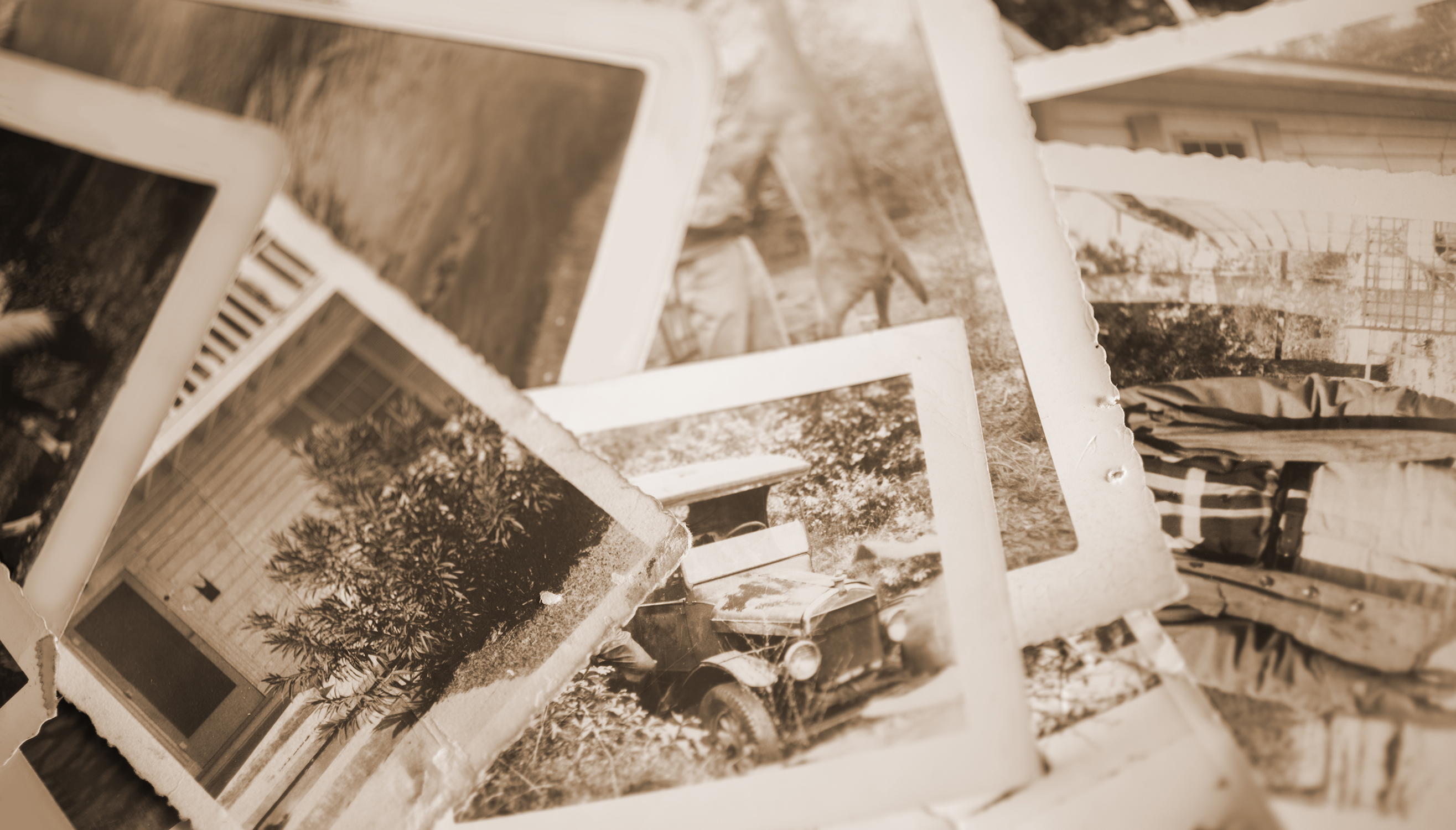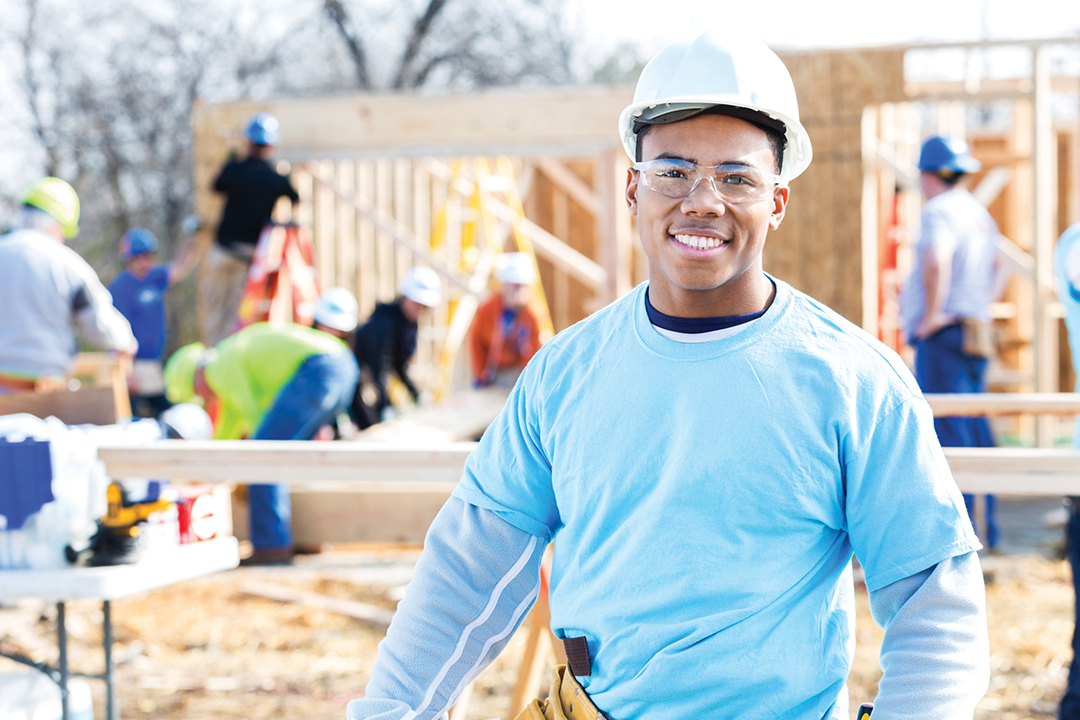800-247-1812 | info@mhwconline.com
New Home Warranties
for Manufactured Homes
for Manufactured Homes
We recently had the good fortune to hear an inspirational sermon on minding our tongues. The principal idea was that we should watch what we say and guard against hurting ourselves and others by engaging in harmful gossip, mindless vulgarity, and unwarranted vitriol. The message was that not only does this kind of speech hurt others, but it also damages the speaker in various ways. The lesson was a good one that would no doubt benefit many people. Personally, I took a few notes and even posted part of the lesson next to the computer where I receive and send emails.
The subject of that sticky note concerns a test one can employ to determine whether he should speak on a subject or listen to someone else do so. The “triple filter test” is often credited to Socrates and is usually told as a dialogue between him and one of his students. As the tale goes, an acquaintance of Socrates’ said something unflattering about Socrates to the student. The next time he saw Socrates, the student was anxious to let Socrates know what was being said about him. But Socrates stopped his student and told him he should not share what was said unless it could pass through any of three different filters.
Socrates asked if the student knew the statement to be true. The student said that he did not know, and Socrates replied, “If you do not know it to be true, why would you say it, and why should I hear it?”
He then asked if the statement was good or kind. The student answered that it was not, to which Socrates replied, “If this statement is not true and is neither good, nor kind, why would you say it, and why should I hear it?”
Finally, Socrates asked whether the statement was necessary for him to hear or whether hearing it would be useful to him. The disappointed student said it was not. Socrates asked the student, “If this statement is not true, good, kind, necessary or useful, why would you say it, and why should I hear it?” The student held his tongue and learned a valuable lesson, a lesson that remains instructive today.
The story of Socrates’ three filters resonates now because, while wisdom suggests and sermons implore us to live one way, many people still find it difficult or impossible to do so. Consequently, as they have through the ages, people will talk, and they do not always care whether what they say is true, good, kind, necessary or useful. A strong individual, like Socrates, can stay above the fray and choose to ignore and not engage in banter that cannot pass through any of the three filters. That is not as easy, or as desirable, for a business to do. Unfair public comments about any company can have a negative effect on its bottom line, on the morale of its people, and even on its ability to stay in business.
The good news is that you and your company are not merely at the mercy of those wagging tongues. There are measures builders can take to protect their company’s reputation from everything from second-hand unflattering comments to scurrilous attacks on the quality of their work and the character of their people, and everything in between.
Here are just a few such techniques that can help protect a builder’s reputation in the marketplace.
Monitor your online presence and reviews. Even if you have not set up a business profile online, people can leave comments and reviews about your company on various websites. Search your company’s name on the internet and see where people are talking about you and what they are saying. If possible, address any unfair criticism and consider giving your side of the story regarding any fair complaint. If you discover a major problem, consider retaining an online reputation consulting firm or reputation management software.
Be a positive force in the communities where you build and keep an ear to the ground. Encourage your management team and your staff to engage in public service in the communities where you build. Not only will this enhance your company’s image, but your employees will get satisfaction from helping others, and they will be able to hear any negative scuttlebutt about your company that might be circulating in the community.
Treat your employees fairly. One source for negative comments about businesses is the disgruntled employee. He knows a lot about how his employer operates, he knows what to say that will hurt his employer in the marketplace, and he has an ax to grind. Do your best to keep your employees happy and supported. If an employee is heading down a negative road, try to reel him back in so that he can continue working as part of your team. If saving him is unlikely, consider parting ways earlier rather than later and on terms that do not further antagonize him.
Do good work and keep your customers happy. There is no better advertisement than the earnest praise of a satisfied customer. Deliver what you promised, service your product, and be prompt and courteous whenever dealing with a purchaser of one of your homes, and it is unlikely your customers will be making comments that damage your reputation. Consider using satisfied customers’ comments to get a positive buzz going or to counter any negative impression that already exists about your company.
Associate with the best third-party services providers in the business who know how to treat your customers right. Anyone you recommend to your purchasers or with whom you partner in assisting your purchasers is viewed as an extension of you by your customer. Make sure the real estate agents, subcontractors, landscapers, insurance agents, and warranty companies with whom you associate understand your mission and respect your customers as much as you do. By doing so, you will enhance your reputation with your customers and in the community.
MHWC/RWC can help you enhance that reputation by providing your customers and you with the best new home warranty on the market. We have been in the home warranty business for over four decades and have issued and administered warranties on more than 3.7 million homes! All MHWC/RWC warranties provide clear performance standards that help create realistic expectations in your homeowners and provide a road map to resolving even the stickiest customer complaints. Our pleasant customer service staff is dedicated to making your interactions with MHWC/RWC as smooth as possible, and our veteran warranty resolution team will handle your customers’ claims with care.
People will talk, but why not get them talking about what a great builder you are? Put your best foot forward by giving your customers the best warranty around, a MHWC/RWC warranty!
Have a great Fall and Winter!
(Click image to download newsletter)
(Click image to download newsletter)
“Home is where the heart is.” We have heard that description of “home” countless times in our lives. We have seen it painted on kitchen plaques and embroidered on couch pillows. It sounds like the epitome of Americana, born from sweet American sentimentality. But it is not a uniquely American thought. In fact, the author of those words, Pliny the Elder, was born in Rome nearly 2000 years ago. Centuries earlier King Solomon wrote that “the Lord blesses the home of the righteous” in Proverbs 3:33 and instructs us to “get your fields ready, and after that build your house” in Proverbs 24:27.

We consider the homes of early American patriots to be an important part of our heritage. We visit places like Mt. Vernon and Monticello to pay homage to George Washington and Thomas Jefferson. Many of us at our Pennsylvania office have wandered around the little house in Philadelphia where Betsy Ross sewed her famous flag, and the log cabin where Abraham Lincoln read by candlelight is etched into our collective conscience.
Homes have been featured prominently in literature and in the movies those books spawned. Jay Gatsby’s mansion in The Great Gatsby symbolizes the grandeur and to some extent the emptiness of the Roaring Twenties. Margaret Mitchell’s Tara changes throughout Gone with the Wind to show how the plantation lifestyle and the southern antebellum way of life disappeared with the end of slavery, never to return again. Shirley Jackson was inspired by the Winchester Mystery House when she conjured up the scary home that was the setting for The Haunting of Hill House, and she created another odd home to mesmerize her readers in her wonderful novel, We Have Always Lived in a Castle.
Many of us can recall as youngsters watching television shows featuring homes where the young characters grew up and thrived. The Little House on the Prairie was where good parents taught their children valuable life lessons and where Laura Ingalls proclaimed, “Home is the nicest word there is.” And most of us were touched by the love and homespun wisdom that was regularly on display in The Waltons’ poor yet idyllic home on Walton Mountain.
As inspiring, scary, or enchanting any of those homes are, however, the homes that mean the most to us are the ones where we grew up or in which we raise our families. The hundred-year-old brick house I shared with my five siblings and my parents when I was kid is such a home, and I fondly remember each nook and cranny of it. The large inside window seat at the front of the house is where we would perch to wait for our parents to come home from work or watch for the doctor’s car to pull up if one of us was sick. My grandmother gave me a fish tank one Christmas, and my parents let me put the tank on that seat where it stayed until I grew tired of keeping fish and the last one died.

There was an old closet under the steps where we kids kept our toys. I recall throwing my baseball glove in there when football season would start. By the next baseball season the glove would work its way to the back of the closet, and I would dig through basketballs, football helmets, rubber boots, and hockey sticks until I’d get to my glove. The closet was a kind of calendar, and if I was digging my glove out, it meant that spring was about to arrive.
All eight of us would pack into our kitchen for meals, and afterwards our father would show us an interesting story in the newspaper, or an older sibling would ask about a car advertised for sale or about a job she saw in the help wanted ads. We would gather in the living room at night, our father usually laying on the floor and our mother perching nearby next to the radiator to keep warm, each of them leaving the chairs and the couch for their children to use. When my oldest brother left home, I was given his bedroom on the third floor, the first time I had my own room. My parents bought me a can of paint. I remember painting the room blue and feeling like I had arrived.
I have seen or read about many grand homes in my lifetime, but I would not trade my memories of that old house on Water Street to have lived in any of them.
Builders & manufacturers are uniquely positioned to influence the lives of not just their customers, but of every family who will ever live in the homes they build. There is probably no other product that affects so many people over such a long period of time. You might build a home where a future president, the first person to walk on Mars or the doctor who discovers the cure for cancer grows up. But even if you don’t, you will build homes in which children will be nurtured, where important life lessons will be taught and learned, where joy can abound, and where memories will be created that will last multiple lifetimes. What a great business to be in and what a noble calling!

We are proud of our builders. We know how well they ply their craft, and we know they want to provide the best homes for their customers. Here at MHWC, we believe the best home you can build is one that is backed by an MHWC warranty. We are biased, of course, but we believe that, if you compare us to the competition, you will arrive at the same conclusion.
We appreciate your business, your confidence in us, and your commitment to building great houses that generations of Americans will call home.
Have a great spring and summer!
(Click image to download newsletter)
 If there is one thing that seasoned professionals in our industry can agree upon, it is that we are resilient when it comes to surviving hard times. Be it builder, mortgage lender, or real estate broker, if you have been in any aspect of this career field for a while, you may have a bit of a familiarity with the term ‘this too shall pass’. Even with this in mind, the impact of the COVID-19 pandemic on daily life may feel never-ending.
If there is one thing that seasoned professionals in our industry can agree upon, it is that we are resilient when it comes to surviving hard times. Be it builder, mortgage lender, or real estate broker, if you have been in any aspect of this career field for a while, you may have a bit of a familiarity with the term ‘this too shall pass’. Even with this in mind, the impact of the COVID-19 pandemic on daily life may feel never-ending.
We are all experiencing the effects of this global pandemic, emotionally, mentally, and physically, if not through illness than through the safety restrictions in place across the country. Despite how it may appear, the proverbial sky of our economy is not actually falling, and it will rebound. As professionals in the real estate industry, we universally share a propensity toward being skilled at perseverance.
Perseverance helped many of us survive the worst financial crisis of our lifetime in 2008. The ebb and flow of the market is not unfamiliar, but this crisis is coupled with a physical threat. The response to this pandemic is pounding our economy, while simultaneously threatening us with physical illness. This cocktail of discomfort makes for a challenge unlike anything most of us have faced in recent history.
Fear of the unknown, an enemy we cannot see, pressurizes the anxiety and uncertainty of our experience. The word being utilized most often to describe our current state of being is ‘unprecedented’. It goes without saying, because there is no rule book guiding us, the feelings associated to a lost sense of control are amplified. Adapting to this new way of life plays a role in our quest to regain some semblance of normalcy.
To cope, we often lean on the principles of self-distraction. However, with distraction, a level of responsibility is imperative. For example, disregarding the social distancing rules, intended for the protection of those most at risk, could prove detrimental to physical well-being. Mental and emotional exhaustion are heavy, but gambling with your physical health is inadvisable as it not only harms you, but it endangers everyone you encounter.
The biggest key here is that no one, not any single one of us, is spared from what is happening. However, it can be a unifying feeling when stepping outside of oneself to take inventory of the ways in which we are all in this together. Much like a new baby coming into the world, we are all learning how to crawl and then hopefully how to walk during this crisis. Having hope is the life-bread of seeing our way to the other side.
Channeling perseverance effectively can feed hope. Refocusing uncertainty into the pursuit of small goals can create a positive and healthy impact. Examples of healthy outlets include: setting an exercise schedule; hiking in a park you have never visited before; fostering a pet; taking one hour a day to learn a new hobby; or teaching yourself a new technology to keep you connected with others.
Amidst the chaos, there can be gifts hidden below the surface that await discovery. The social downtime we have at hand may be exactly what has been needed for us to rediscover our sense of community and self-connection. If you give into the opportunity to heal relationships at this time, even with yourself, then you may find that, when the time comes, you will reenter the world stronger than ever before. Now is the time to lean in, through our individual strength we can continue to persevere, to rebuild, and to heal as one. Be safe, stay strong, remain healthy.
 A year ago, few of us who are not health professionals had thought much about pandemics, and none of us had heard of or even contemplated anything called Covid-19. Now people in every corner of the world have been adversely affected by this invisible enemy, as the Covid-19 pandemic has destroyed lives, wrecked economies, and dominated the news for months. Faced with this, as with any, crisis, we search for ways to cope and find inspiration in our faith, in those around us and in our heroes.
A year ago, few of us who are not health professionals had thought much about pandemics, and none of us had heard of or even contemplated anything called Covid-19. Now people in every corner of the world have been adversely affected by this invisible enemy, as the Covid-19 pandemic has destroyed lives, wrecked economies, and dominated the news for months. Faced with this, as with any, crisis, we search for ways to cope and find inspiration in our faith, in those around us and in our heroes.
One of our heroes here at RWC is the 26th President of the United States Theodore Roosevelt. He is often remembered as the brave warrior who led the charge up San Juan Hill during the Spanish American War, as the dynamic President who transformed America into a world power with his “Speak softly, but carry a big stick” diplomacy, and as the audacious leader of the Bull Moose party who came closer than any other modern American to winning a presidential election as a third party candidate. These and many other feats have won him a place in the hearts of his countrymen and even on the rocky slope of Mount Rushmore where he is immortalized with the likes of Washington, Jefferson and Lincoln, and rightly so.
But more than these triumphs, we find some of the less renowned aspects of Theodore Roosevelt’s character inspirational in these troubling times. First among these was his resilience. He was a weak and sickly child, but he challenged himself to overcome his physical infirmities through a rigorous regimen of exercise and activity and became a great athlete and outdoorsman.
He was a happy go lucky twenty-five-year-old newlywed when, on Valentine’s Day 1884, his fifty-year-old mother and his twenty-two-year-old wife died in the same house eleven hours apart. The one entry in his diary that day said, “The light has gone out of my life.” Even in the face of this unimaginable tragedy, Teddy Roosevelt did not quit. Later that year he moved west to the Dakota Territory and set up camp twelve miles from the nearest homestead. He lived a solitary life as a rancher and cowboy, often spending sixteen hours a day on horseback, and returned three years later to New York revitalized and ready to embark on a new life of personal and political triumph virtually unmatched in our history.
A couple decades later, when he believed his handpicked successor as President, William Howard Taft, was not being true to the ideals Roosevelt had advanced in his presidency, Teddy Roosevelt did not sulk or complain. Rather, he entered the arena again and tried mightily, albeit unsuccessfully, to retake the White House. Teddy Roosevelt’s resilience was one of the keys to his greatness.
The other aspect of Roosevelt’s character which we can try to emulate and from which we can draw strength and purpose is his sense of duty, which drove him throughout his life. In his 1913 autobiography he summed up one’s duty in life by quoting Squire Bill Widener of Virginia: “Do what you can, with what you’ve got, where you are.” Teddy Roosevelt recognized that the most important duties are not those of presidents or world leaders, but of parents to their children, neighbors to their friends, and citizens to their communities. When crises befall us then, we are obliged not to wring our hands and complain that others are not fixing the problem quickly enough, but to start where we are, use what we have, and do what we can to help.
When the towers fell on September 11, 2001, our world turned upside down. Americans felt an insecurity in their hometowns that they could never remember feeling in their lifetimes. At RWC we sent our employees home that day, but every one of our people showed up the next day—unsettled, worried, and changed a little—but manning their posts, doing their duty, and helping our members and their homeowners carry on with their businesses and their lives.
When the housing bubble burst a dozen years ago, financial calamity hit the home building industry and millions of Americans lost their homes. Every day we received news of builders defaulting on their warranty obligations, filing for bankruptcy or simply disappearing. An unprecedented number of homeowners looked to RWC to repair their homes. Throughout that crisis we manned our posts, fixed those homes, spent millions of dollars doing so, and lived to tell the tale.
When the Covid-19 crisis hit, we were told to avoid large gatherings of people so that we could slow the spread of the virus. For the safety of our employees, their families and our community, we sent all of them home. For the first time in our history we asked them all to work remotely, which we thought we could pull off for a little while. Then the governor told us we could not go back to our office until further notice. We continued to operate remotely and, though the road was bumpy at first, we found a way to provide our usual high level of service from the more than hundred different places our employees live. We challenged our people to make it work, and as a result of their resilience and sense of duty, we barely missed a beat.
Here is the point in this article where we usually ask you to buy more warranties, but we’re not going to do that this time. We just want you to know that, regardless of what crisis befalls us, RWC is here for you. Our people are resilient, and they know their duty. We are at our post, ready to use what we have, to do what we can for you and your homeowners. It’s what we do, and besides, we know Teddy would want it that way!
Have faith, be strong, and know that we are hoping and praying for the health and safety of your families, your people and you.
(Click image to download newsletter)
(Click image to download newsletter)
(Click image below to download newsletter)
© Copyright 2025 MHWC. All rights reserved.